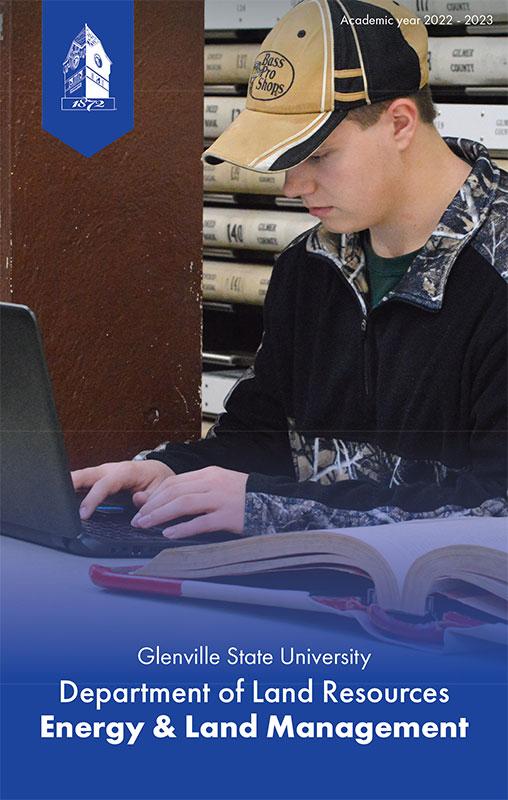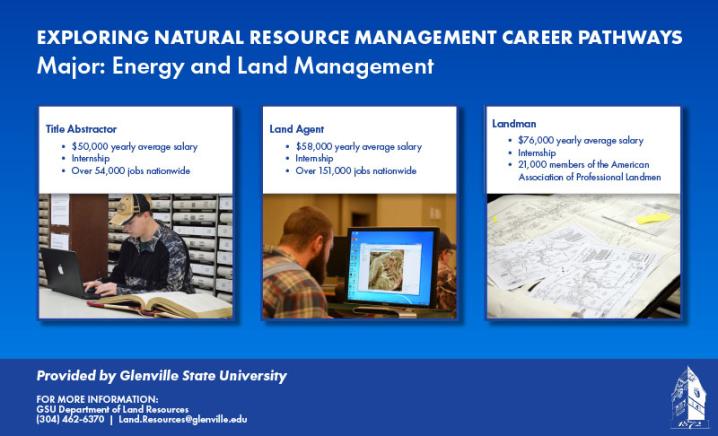Energy and Land Management Major
The Energy and Land Management major is designed for students interested in working in energy and land use development, management and planning. Graduates of this program are able to find a large number of career opportunities with federal government agencies, such as U. S. Department of Transportation and the Bureau of Land Management. At the state level, graduates qualify for opportunities with the Department of Environmental Protection, Division of Highways and others. Additionally, graduates qualify for private industry positions including, but not limited to, oil and gas landman, realty specialist, right-of-way agent and title abstractor.


Course Requirements
Plan of Study
Mission Statement
Graduates will have knowledge of the major historical legal issues in the mineral extraction industry, analytical skills to perform a certified title search in any state east of the Mississippi under the supervision of an attorney licensed in that state and to prepare, file and follow to the final granting stage any permit involving the mineral extraction in any state east of the Mississippi. Graduates will also have the communication abilities to negotiate leases, deeds, unitization and pooling agreements, joint operating agreements and other documents that are regularly utilized in the course of business in the mineral extraction industry.
Objectives
A graduate of this program will:
- Have a knowledge of the history and the current status of the oil and gas industry.
- Have a general knowledge of the skill requirements of the legal assistant's research and writing.
- Have a knowledge of the practical applications of legal analysis required to perform paralegal competence in contracts and business organization.
- Have a core knowledge of the practical applications of legal analysis required to perform paralegal competence in property and probate law.
- Have a knowledge of courthouse research and paralegal work necessary to negotiate natural resource leases, right-of-way leases and purchase of rights to develop and extract natural resources.
- Develop an understanding of land-based renewable resources including forests, rangeland, farmland, outdoor recreation, and wildlife.
- Evaluate economic, political and social concepts impacting sustainable development and the use of natural resources.
